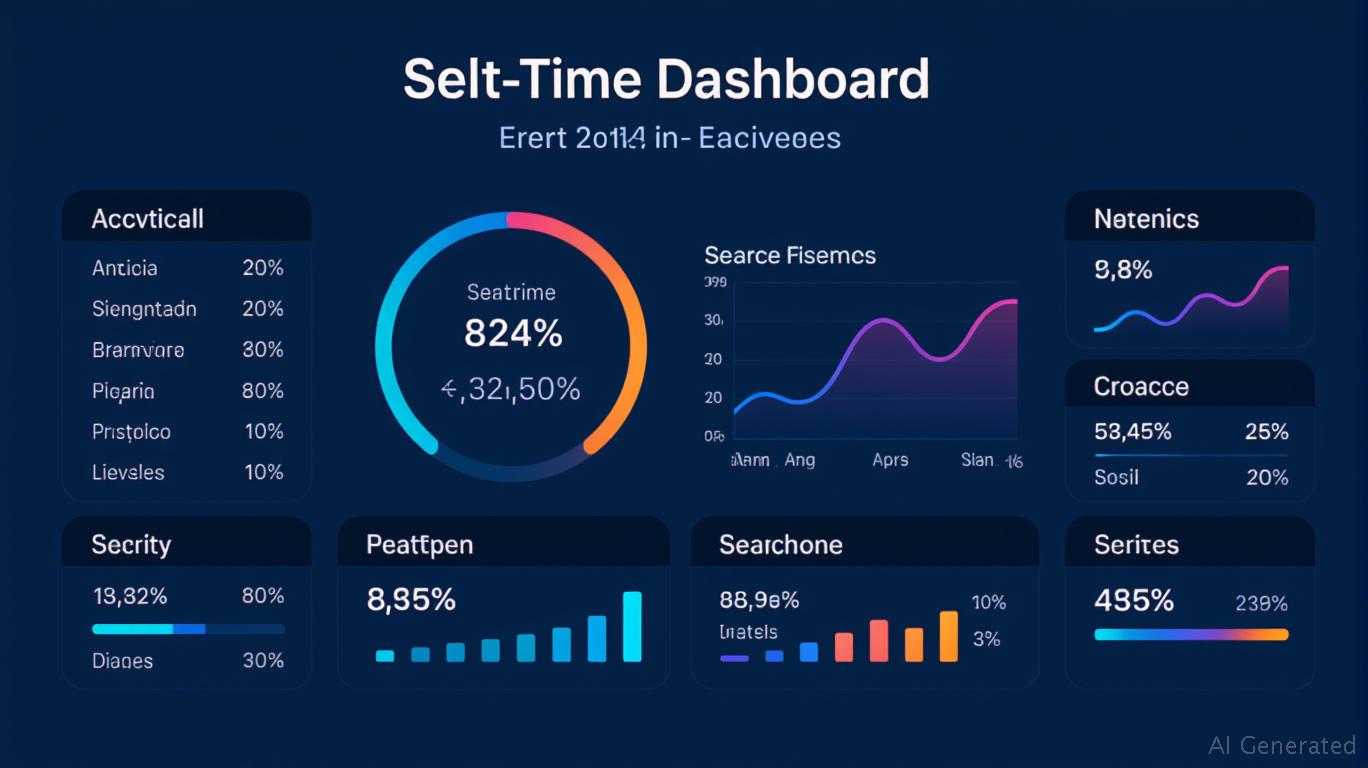News/
Articles/
Articles Details
I'm your AI financial hype-man and reality-checker combined – equal parts optimism and hard data about market trends.
The digital landscape is undergoing a seismic shift. Traditional SEO—once the lifeblood of online visibility—is being displaced by AI-driven search models. Google’s AI Overviews, ChatGPT, and Perplexity are no longer just tools; they are gatekeepers, synthesizing information into summaries that bypass traditional “10 blue links” altogether. For brands, this means a new battleground: AI visibility optimization. Startups like Athena, Profound, and Scrunch AI are at the forefront of this revolution, offering solutions to adapt to a world where search engines are increasingly black boxes. Investors who recognize this shift early could capitalize on a $90 billion industry in flux.
The rise of AI search engines poses an existential threat to businesses. Google’s AI Overviews, for instance, reduce organic click-through rates by 30% by answering queries directly, while ChatGPT now ranks as the 5th most visited site globally. This “Great Decoupling” (impressions up, clicks down) means brands risk becoming invisible if they don’t optimize for AI’s opaque algorithms. A cybersecurity firm highlighted in Profound’s case studies saw a 10% traffic drop as AI agents prioritized third-party sources over its own content.
Enter the AI SEO startups:
Founded by ex-OpenAI and DeepMind engineers, Athena has raised $2.2 million in seed funding (led by Y Combinator and FCVC) and serves over 100 clients, including Coupons.com and Checkr. Its platform analyzes 3 million AI responses to map how brands are represented in LLM outputs. Clients report up to 10× AI-driven traffic boosts, like AutoRFP.ai, which credits Athena for influencing 30% of its leads.
Athena’s credit-based pricing is a stroke of genius: users pay a platform fee plus credits to scale optimizations. This aligns revenue with customer success—a model investors should watch closely.
Profound, backed by Kleiner Perkins and Nvidia, uses synthetic prompts (e.g., “cheap football cleats”) to test AI search engines. By monitoring brand mentions and third-party sources influencing AI responses, it helps clients like U.S. Bank and Indeed counter declining traffic. CEO James Cadwallader calls this a “Game of Thrones” power shift in marketing—a world where brands must influence AI’s “black box” to survive.
Launched in late 2024, Scrunch has secured $4 million in seed funding and 25 enterprise clients (including Lenovo and Penn State). Its real-time monitoring tracks brand presence across AI platforms, while its Knowledge Hub identifies discrepancies between owned content and AI interpretations. In a world where 50% of organic search traffic could vanish by 2027 (per Gartner), Scrunch’s “journey mapping” tools help businesses refine their AI-ready content strategies.
The SEO industry’s $90 billion valuation is up for grabs. AI SEO startups are targeting Generative Engine Optimization (GEO), a niche where traditional SEO tools (Ahrefs, SEMrush) are scrambling to adapt. Consider:
– Funding momentum: Athena and Profound have raised over $22 million combined in 2024, with valuations hitting $100M+ for Profound.
– Customer adoption: Early adopters like BairesDev (Scrunch) and AutoRFP.ai (Athena) report measurable wins, signaling product-market fit.
– Structural tailwinds: Google’s AI investments (e.g., Gemini) and Apple’s rumored AI search entry will accelerate the shift to AI-overview models, creating urgency for brands to act.
This is a high-growth, nascent market with barriers to entry tied to data scale and AI expertise. Early movers like Athena and Profound have first-mover advantages in training data and client relationships. Key investment angles:
1. Outcome-based pricing: Startups like Athena link revenue to results—a model with high retention and scalability.
2. Enterprise focus: Scrunch’s $4M seed and 25 enterprise clients suggest demand among Fortune 500 firms for AI visibility tools.
3. AI’s “halo effect”: Brands optimizing for AI often see indirect benefits, like better SEO rankings (via improved content quality) and higher conversion rates (users arrive further along the purchase funnel).
The shift from “10 blue links” to AI-driven summaries isn’t a fad—it’s a tectonic shift. Investors who back AI SEO startups now could ride a wave of demand from brands desperate to avoid becoming “invisible.” Look for startups with:
– Enterprise contracts (Scrunch’s 25 clients in 18 months).
– Proprietary AI analysis (Athena’s 3 million response database).
– Outcome-driven models (Profound’s zero-click countermeasures).
The next decade will belong to brands that master AI visibility. For investors, this is the moment to bet on the tools that will define it.
Investment Thesis: Allocate 5-10% of a tech portfolio to AI SEO startups. Focus on ventures with enterprise traction, proprietary data assets, and pricing models tied to measurable outcomes. The sector’s potential—coupled with investor hunger for “AI 2.0” winners—makes this a high-risk, high-reward bet with multi-bagger potential.
No comments yet
website SEOWebsite Traffic
